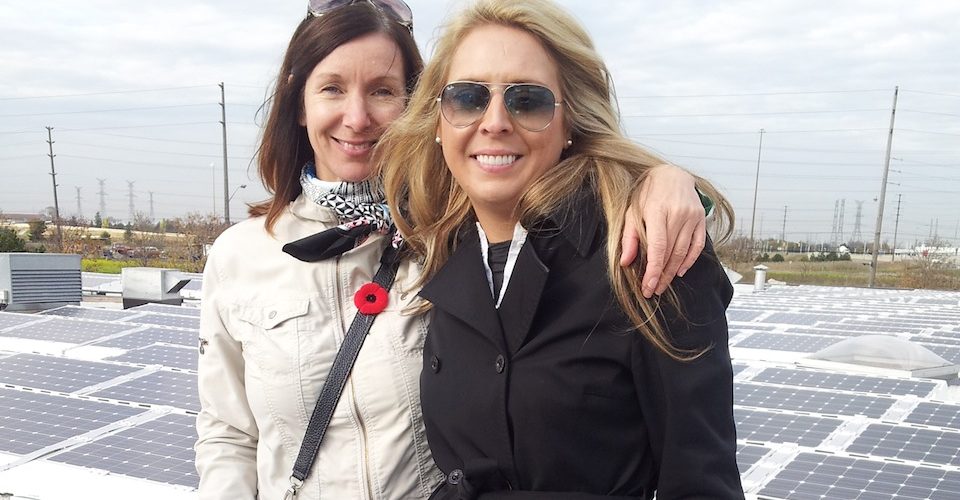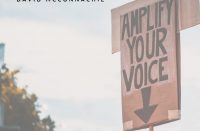At the 2013 Canadian Wind Energy Association’s (CanWEA) conference a new group launched to encourage greater inclusivity in the energy field, Women in Renewable Energy (WiRE). Founded and co-chaired by Rebecca Black and Joanna Szarek Osawe, this non-profit organization is dedicated to “furthering education and awareness surrounding renewable energy development and policy in Ontario.”
At the 2013 Canadian Wind Energy Association’s (CanWEA) conference a new group launched to encourage greater inclusivity in the energy field, Women in Renewable Energy (WiRE). Founded and co-chaired by Rebecca Black and Joanna Szarek Osawe, this non-profit organization is dedicated to “furthering education and awareness surrounding renewable energy development and policy in Ontario.”
Black and Szarek Osawe have been networking and fostering engagement for several years as the GTA chapter of Women of Wind Energy. Rebranding this chapter as WiRE was seen as a way to address a broader audience and be more inclusive to the vast field of renewable energy (RE). WiRE aims to develop a policy voice by advancing the role and recognition of women working in the diverse RE sector.
Although women in Canada have had higher rates of educational attainment than men since the 1990s, they are less likely to participate in the labour market. For 2011, the Organization for Economic Co-operation and Development (OECD) reported an employment rate of 69 per cent of women versus 75 per cent of men between the ages of 15-64.
Women are especially under-represented in the fields of engineering, manufacturing and construction in Canada. In 2011, 23 per cent of graduates from Tertiary-Type A programs – theory-based programs with sufficient qualifications for entry to advanced research programs and professions with high skill requirements – were women, compared with 77 per cent of graduates being men. The numbers were worse still for the fields of engineering and engineering trades; 18 per cent of 2011 graduates were women compared to 82 per cent who were men.
WiRE’s mission seeks to address this imbalance; they will play an integral and visible role in Ontario by hosting educational field trips, monthly networking meetings, and communication and engagement initiatives. A main goal of their programming is to increase members’ literacy on technologies, projects, companies and associations that drive RE in Ontario. WiRE’s Advisory Committee members represent a variety of fields engaged in the RE sector including: engineering, legal, insurance, technology, environmental assessment and services, permitting, project and business development.
WiRE is also building partnerships with RE industry organizations and other related networking groups for professional women from across the energy sector. Organizations include the Ontario Sustainable Energy Association, Canadian Wind Energy Association, Canadian Solar Industries Association and Women in Electricity.
A\J joined WiRE for its first field trip in November, 2013 to the headquarters of solar energy project builders RESCo Energy Inc., and the first co-op owned solar project in Toronto, SolarShare’s Goodmark rooftop installation. Participants toured the Mississauga headquarters before learning about RESCo and SolarShare’s operations, meeting a selection of the women who work at the facility and hearing about their various modes of engagement with the RE industry. Here’s some of what we learned:
RESCo is a licensed electrical contractor and consulting engineering firm with a client list that includes the Regional Municipality of Waterloo, which is implementing an 800kW portfolio of RE installations throughout the Region.
SolarShare is a not-for-profit co-operative corporation focused on growing community-based solar electricity generation in Ontario through Community Solar Bonds. All bonds are backed by 20-year government agreements under Ontario’s Feed-in Tariff (FIT) Program.
Related: Read Stu Campana’s discussion of Ontario’s FIT Program in A\J’s Renewable Energy blog.
While still gaining popularity in Canada, the community power concept is not a new model globally. This approach to energy development mitigates potential problems and conflicts by involving local people in the decision-making process of planning and implementing power supply. SolarShare also sees community solar projects as a way to mitigate climate change and use an economically viable and democratic model of involvement to engage people financially.
WiRE is currently developing avenues for professional and student outreach, and aims to provide more opportunities for students and those not currently engaged in the renewable energy sector to meet women who are active in the field. On February 18th, 2014, WiRE will be hosting another field trip, this time to the MaRS Discovery District – Canada’s largest innovation cluster. Learn about the services the MaRS CleanTech Practice offers and the initiatives they support, and meet the female entrepreneurs behind them.
Amy is a graduate student at the University of Waterloo pursuing a Master of Arts in Planning, with a focus on the adaptive reuse of historic buildings. She has an Honours Bachelor of Arts in Studio Arts from the University of Guelph and is interested in built and natural heritage conservation, photography, all forms of culture, and identifies as a maker.













